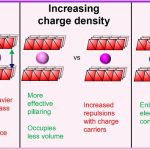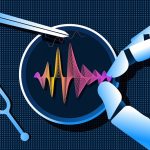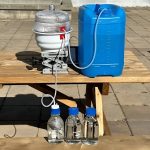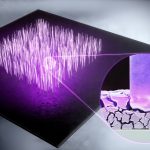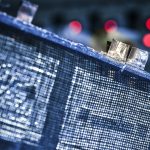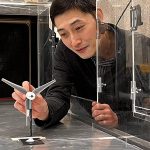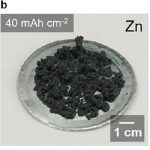Scientists unlock new technique to boost performance of alternative batteries
As the world’s demand for energy storage grows, the supply of lithium—a key component in most batteries—is becoming limited and more expensive.
This has led...
Tiny robots morph and move with a spark of electricity
Researchers at Cornell University have created incredibly small robots, less than 1 millimeter in size, that can change their shape and crawl when given...
Scientists develop porous zinc anodes to boost zinc-ion batteries for large-scale energy storage
As the world’s demand for energy storage grows, the limitations of current lithium-ion batteries, such as safety concerns, high costs, and resource shortages, have...
New lithium-sulfur batteries stay safe and last longer, even when cut or folded
Lithium-ion batteries are commonly used in devices like phones, e-bikes, and handheld vacuums.
However, these batteries have some downsides: they can wear out quickly and...
Scientists develop solar-powered device to turn seawater into fresh drinking water
Researchers at the University of Waterloo have created an energy-efficient device that uses solar power to convert seawater into fresh drinking water.
This new technology...
Scientists discover game-changing technique to mass produce metal nanowires for next-gen electronics
Scientists at Nagoya University in Japan have developed a new method to grow tiny metal nanowires (NWs) that could be important for future electronics.
Nanowires...
This new carbon fiber battery could make electric cars drive 70% further—and it’s as...
Researchers at Chalmers University of Technology in Sweden have made a groundbreaking advancement in energy storage.
They have developed a "structural battery" made of carbon...
Scientists find way to boost efficiency and reduce noise for wind turbines
Researchers from the University of Adelaide have discovered that wind farms could benefit from slowing down some of their turbines.
This approach could improve efficiency,...
How electric vehicle charging stations are boosting local businesses
Electric vehicle (EV) charging stations are crucial for reducing pollution and transitioning to cleaner transportation.
But beyond their environmental impact, new research from MIT suggests...
Scientists develop safer, longer-lasting zinc batteries
Scientists have made a significant breakthrough in creating safer, longer-lasting zinc batteries that could soon replace lithium-ion batteries.
A research team, led by Dr. Jung-Je...

